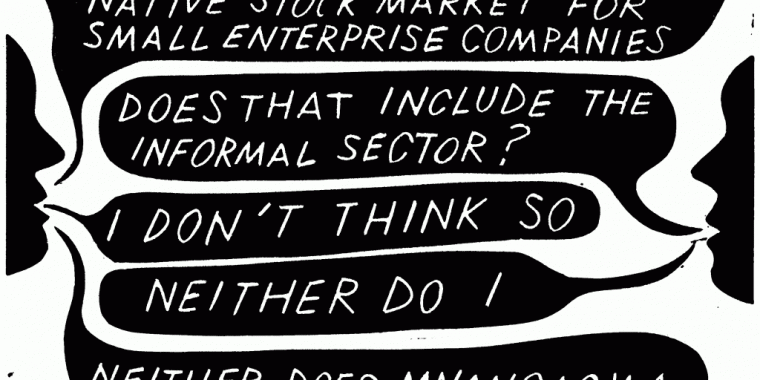Welcome to our latest article in the monthly “An Interview With” series. In this series, I connect with people from all parts of the legal profession and at all stages of their legal career to learn who really makes up the legal community and what they are actually doing with their legal degrees.
This month, I chatted with an immigration attorney and the owner of Lacroix Law, Miriam Lacroix. Miriam is a 2014 graduate of the Elisabeth Haub School of Law at Pace University. Today, Miriam runs her own solo practice, where she provides legal services and peace of mind to immigrants navigating their path to legal status.
In this article, we’ll learn about Miriam’s journey to becoming a solo practitioner, some of the challenges she faces running a small business, and what it is really like to be an immigration attorney in 2019.
KS: Tell us about your journey to becoming a solo practitioner and small business owner.
ML: Having my own practice became a dream of mine in law school. As a student, I participated in an immigration clinic, where I represented clients in their immigration cases as a student attorney. After law school, with my future private practice in mind, I became a part of the inaugural class of the Immigrant Justice Corps, where I served as a Fellow at the City Bar Justice Center. After training and experience, I felt prepared to finally realize my dream of owning my own law firm.
KS: What do you love about running your own practice and being your own boss? Conversely, what are some challenges that come with being a small business owner?
ML: Although I love being a lawyer and representing clients, I have to say that my favorite part of what I do is the business aspect. I love making new relationships with other professionals, engaging with people via social media, conducting presentations, and being creative with how I offer more value to my clients. I’m obsessed with the idea of a law firm that is organized and streamlined and can run without me. That’s the goal I am working towards.
Being a small business owner comes with the challenge of being the boss and being responsible for every decision. Although I like to think that I know everything, that is absolutely not the case. One of the hardest parts for me is the fear of making the wrong decisions. I’m grateful for my colleagues, who I rely on for support and advice.
KS: I know this question is a bit of a trap for business owner, but describe what your typical workday looks like.
ML: It is definitely a trap because no two days are the same. Typically, I split my day up in blocks. I have blocks to do legal work, to return and make phone calls, and to work on marketing, sales, finances, and even admin work. Sometimes, though, I have a day where one of these blocks takes up the whole day! I don’t go to court as much anymore, but some days I have appearances in Immigration Court for hearings or USCIS for interviews.
KS: What drives your passion to practice immigration law?
ML: This is a really good question. Given the current climate, it is so easy to get discouraged. However, my clients, their resilience, their stories, and the fact that I’m often giving someone a chance that they couldn’t have accomplished on their own drives me. My clients are always so grateful, no matter the result, because they appreciate the effort. I am passionate about the freedom of movement and uniting/reuniting families. This administration’s heartless treatment of children and families definitely drives me to want to combat it every chance I get.
KS: Immigration is a topic that gets a lot of news coverage these days. Can you tell us a little bit about the realities of practicing immigration law under the current administration?
ML: Under the current administration, immigration practice has become very difficult. Things change so often that immigration lawyers are unsure how to advise our clients. I find myself saying “maybe” or “it depends” a lot more now than ever. In addition, ICE enforcement has become increasingly more intense, causing fear in immigrant communities. This administration prioritizes all unauthorized immigrants, which is a stark difference from the Obama administration, which prioritized national security threats, such as people with a serious criminal history, and recent border crossers. Back then, a lot of clients had less to worry about because they didn’t fall into one of those categories. Now, I am in the position of wondering whether my clients, who have been in the U.S. for 20-30 years with no criminal history, will be picked up by ICE if, for example, their application for an immigration benefit is denied for some reason.
You’ve got to have some thick skin, perseverance, and patience when practicing immigration under this administration.
KS: What advice do you have someone who is interested in starting their own legal practice right out of law school or very early in their career?
ML: I would say to definitely get a support system outside of your family. Contact friends, colleagues, and possible mentors who you can bounce ideas off of and ask legal questions. When you start a practice right out of law school, you have the double duty of learning how to run a business, while also learning how to practice law/be a lawyer. Those are both very difficult and time-consuming things. In addition, keep in mind that you will make mistakes, you will have ups and downs, and you WILL have some bad months. Take it from me. That is all part of the territory. Don’t get discouraged. I know this sounds cliche, but keep your eyes on the prize. Keep in the back of your mind why you’re doing this because you will need that motivation on a rainy day. And one last piece of advice is to value yourself. Oftentimes when we are new lawyers, we tend to think that we can’t charge too much. Who are we to charge as much as the woman/man down the street who’s been doing this for so long and has years of experience? That is the wrong way to think! Your knowledge, education, experience, and work is what qualifies you to be paid adequately for your work. Do not sell yourself short. You are providing a service that your clients need and their lives are better for it. It took me a while to learn that, but once I did, I saw a huge difference.
You can learn more about Miriam here.
Know someone who would be great to profile in this series? Send an email to info@vincoprep.com with “An Interview With” in the subject line.
 Kerriann Stout is a millennial law school professor and founder of Vinco (a bar exam coaching company) who is generationally trapped between her students and colleagues. Kerriann has helped hundreds of students survive law school and the bar exam with less stress and more confidence. She lives, works, and writes in the northeast. You can reach her by email at info@vincoprep.com.
Kerriann Stout is a millennial law school professor and founder of Vinco (a bar exam coaching company) who is generationally trapped between her students and colleagues. Kerriann has helped hundreds of students survive law school and the bar exam with less stress and more confidence. She lives, works, and writes in the northeast. You can reach her by email at info@vincoprep.com.















 Kathryn Rubino is a Senior Editor at Above the Law, and host of
Kathryn Rubino is a Senior Editor at Above the Law, and host of 


